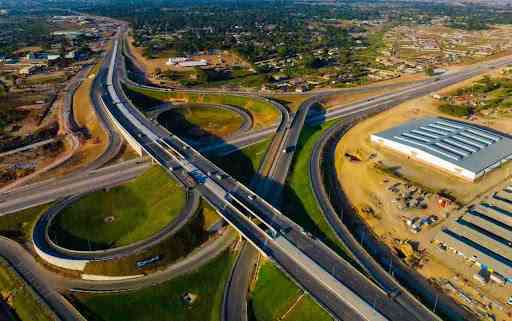DRIVING at 40km/hr along the busy Harare-Masvingo highway, Emmanuel Machikwa (35) is not bothered by the long queue of vehicles behind him.
BY JAIROS SAUNYAMA

Before him is a haulage truck carrying an abnormal load in the form of earth moving equipment, resulting in other motorists finding it difficult to overtake, with oncoming vehicles straddling into the dust to pave way.
Machikwa is an abnormal load escort who goes before or after the truck, marshalling the road to ensure that no motorist crashes. He describes his job as dangerous, characterised by uncertainties, as he deals with lots of road users who have different attitudes and dispositions.
“We face death each time we start that car to escort. So many motorists will be aggressive to you, swearing at you, with some even attempting to run into your escort car. This is despite the fact that when we stop them or flag them to slow down, we are actually doing it to save their lives and property, warning them of imminent danger ahead,” Machikwa said.
Keep Reading
- Chamisa under fire over US$120K donation
- Mavhunga puts DeMbare into Chibuku quarterfinals
- Pension funds bet on Cabora Bassa oilfields
- Councils defy govt fire tender directive
This is the story of Machikwa and other abnormal load escorts who, despite the frustrations and rogue behaviour they encounter on the roads, they remain resolute and ensure that every road user arrives to the intended destination alive.
However, despite their contribution to road safety, this group remains uncelebrated heroes. Like any other job, Machikwa and fellow escorts endure all sorts of hiccups along the highways.
“Just like any other job, you need to be passionate about it. The road itself needs one to be patient. If we lose patience, we destroy lives and property. Our duty is to safeguard lives and national infrastructures. It is a national duty which we are happy to patiently perform,” he said.
According to the escorts, most loads take three days travelling between Beitbridge and Chirundu, while heavy loads like 500-tonne transformers take escorts a week along the same route. The trucks and escort vehicles briefly stop after every 20km to allow motorists behind to pass. However, it depends on traffic accumulation, with drivers forced to briefly stop even after 10km.
The escorts at the back communicate via radio, updating the truck driver of the situation behind since he won’t be able to see the traffic accumulating behind him.
In a bid to announce their existence, the abnormal load escorts have formed an association that is headed by Machikwa and is currently lobbying for government to intervene and deal with untrained escorts along major highways.
“We are having challenges with untrained escorts, who just come and pass in the industry without the knowledge of how to escort, thereby posing risk to motorists and national roads infrastructure. Government should make it a requirement that all escort drivers are trained and certified by the Traffic Safety Council of Zimbabwe,” he said.
“Escorting needs one to know the roads. It is the duty of an escort to safeguard road infrastructure and the load. For example, an abnormal load is supposed to go at slow speed on bridges to avoid damages. Electrical and telephone cables can also be damaged during transit.”
Recently, along the Beitbridge-Harare highway, an impatient Honda Fit driver who tried to overtake an abnormal load, straddled onto the edge off the road before hitting a depression, veering off the road and overturning. Four people were seriously injured in the accident.
“If you see an escort and it is driving on the right lane, it means the abnormal load coming is also encroaching into the right lane. Therefore, it means motorists should immediately stop and park out of the road,” Machikwa said. “We encourage motorists, especially truck drivers and buses, to observe the stipulated following distance. We have witnessed many trucks both driving close to each other at high speed. When they encounter an abnormal load, the one in front stops, but the other one following close will mostly veer off the road after trying to avoid hitting the truck in the front.”
Although abnormal load escorts are less recognised for their role in ensuring safety on the roads, today, Machikwa and his colleagues feel that they are doing the nation good through their work.
The patient escorts endure days on the road, travel for 20km before stopping and dealing with impatient motorists, all for the sake of protecting people’s lives and infrastructure.





